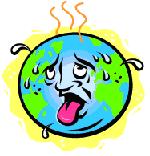
The next time you have to choose your own topic for an essay or research paper, consider an
environmental topic. The state of the world's oceans are a cause for concern for many reasons: coral reefs are "bleaching" due to climate change, fishing practices, and coastal development. Forest clearing, unsound agricultural practices that increase sedimentation, expanding tourism, and increasing pollution are some of the human impacts on the oceans.
A very good resource is the International Union for Conservation of Nature and Natural Resources (IUCN) - World Conservation Union's
Global Marine Programme web site.
"IUCN formed the Global Marine Programme (GMP) in 1985. Since its inception, the Global Marine Programme has been working across Southeast Asia, the Middle East, Africa, the Mediterranean, and Central and South America. These programmes have covered multiple areas such as
integrated coastal and marine management,
fisheries,
marine protected areas,
larger marine ecosystems, as well as
coral reef rehabilitation, and the
effects of coral bleaching and
climate change."
The web site has many free publications, a news service, a newsletter, and links to other resources.
A little closer to home,
click on the photo above to go to the Plastic Debris Rivers To Sea Project. The primary goal of the project is to reduce the land-based discharges via urban runoff of plastics and other discarded materials that degrade water quality and impair beneficial uses of inland and coastal waters.



